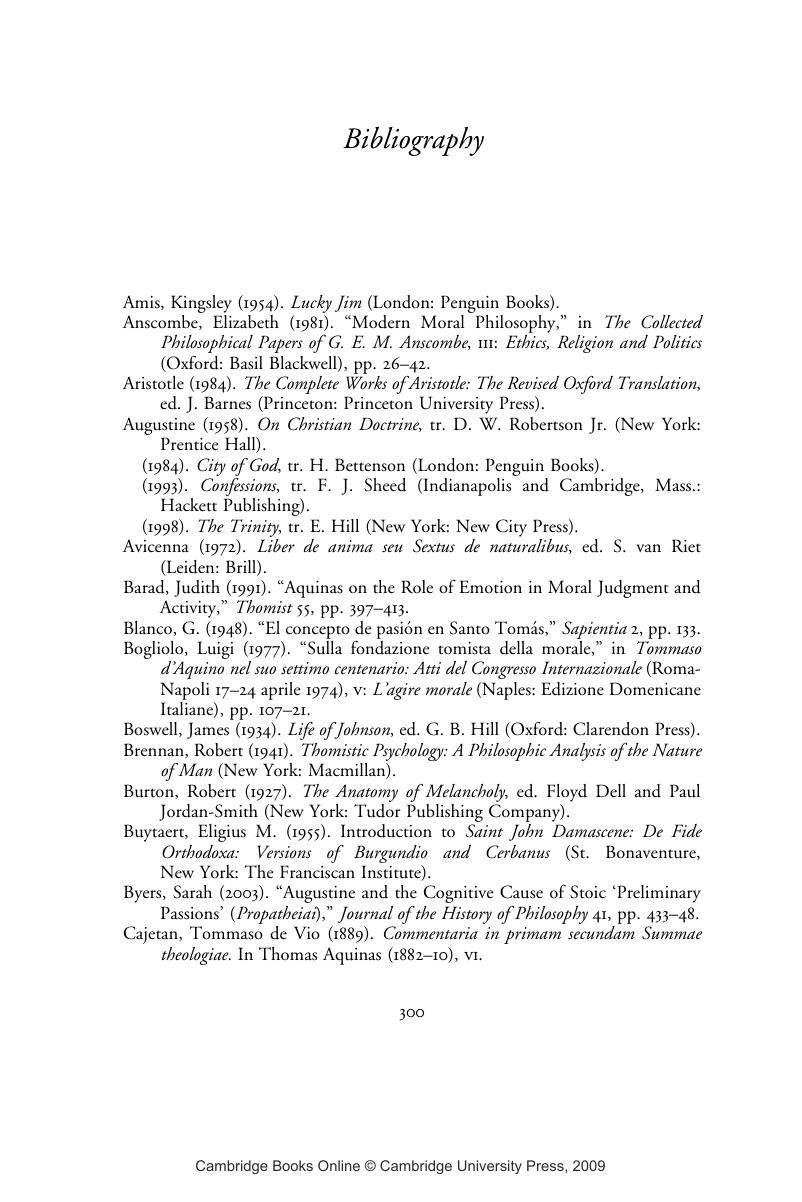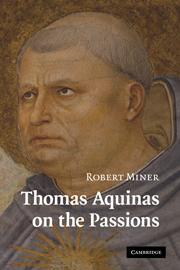Bibliography
Published online by Cambridge University Press: 06 July 2009
Summary

Information
- Type
- Chapter
- Information
- Thomas Aquinas on the PassionsA Study of Summa Theologiae, 1a2ae 22–48, pp. 300 - 307Publisher: Cambridge University PressPrint publication year: 2009
